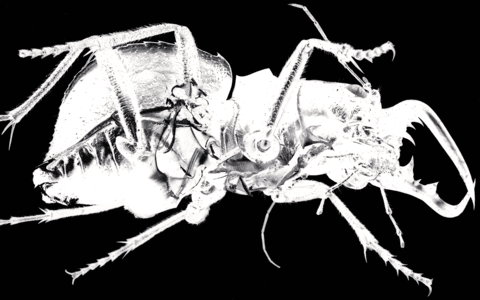My distaste for pop music is (evidently) not at all a problem intrinsically with catchiness, repetitiveness, or simplicity, as common criticism of it goes. Aside from my issues with the corporate side of things, it's that it's completely devoid of allure. Whether a fluffy, campy bubblegum-pop hit; a downcast adult-contemporary ballad; or whatever other flavour popular in the mainstream right now, these songs tend to use catchiness for the intended purpose of unobtrusively blending into the background, and worming their way into the subconscious unnoticed in order to gradually naturalise themselves as part of popular culture -- like a sort of subtle brainwashing. It makes no attempt to seduce: it solidifies itself by pure brute-force into the collective cultural (sub)conscious.
"Catchiness" has significant psychological power, and thereby deserves to be taken much more seriously than it generally is. Along with having the power to brainwash, it can also be profoundly hypnotic. The key difference between these two states is that brainwashing puts you at the foreground as the music dissolves into the background, while hypnosis puts the music at the foreground while you dissolve. This temporary erosion of the self is what makes musical hypnosis so blissful: the baggage of anxiety, responsibilities, identity, etc, melting away into the intensity of the music.
Hypnotic music is rhythmic above all (as opposed to the typical emphasis on melody in pop music), tapping into the instinctual power of entrainment. Michael Gira of Swans once said that rock music is fundamentally sexual: its visceral, rhythmic, heavy character seems to make the genre particularly effective at inducing a hypnotic state, analogous to the depersonalising forces of sexuality. He also specifically compared Swans' own music to "brutal intercourse": incredibly apt in this analogy. Swans stretch rock-heaviness, repetitive rhythms, and catchy, simplistic riffs to their absolute extreme, to the point of transcending "catchiness" as colloquially understood (and arguably even the label of rock, being considered a "post-rock" band) into something else entirely: they're a sort of ultimate, distilled form of rock music, pure hypnosis.
Atmosphere, while more elusive than catchiness, is also an important element of hypnotic music: it creates interest and immersion, it's the difference between repetition being intrusive and annoying, and being smooth and alluring. It can be created either externally -- think being at a live show, or in a church singing hymns in unison -- or from within the music, which is the more emphasised option these days now that music can be (and generally is) entirely isolated from the context in which it was created. Atmosphere is why I heavily prefer post-punk over its originating genre of punk rock: its characteristic deep, dark atmosphere is extremely seductive -- for instance, Joy Division's blend of straightforward punk songwriting techniques with their crushingly bleak atmosphere into an enthralling pitch-black catchiness is the heart of their appeal.
